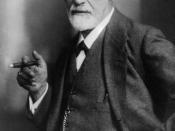ÃÂMagicÃÂ may come as a term for various supernatural, mystical, and paranormal practices; in addition, it may also be the art of illusion. Whatever it is, the word magic will still attract the attention of the people when they hear any topic related to it. The etymology of the word derives from Magus (Old Persian maguÃÂ), one of the Zoroastrian astrologer priests of the Medes; the word entered the English language in the late 14th century from Old French magique. Although some people believed in magic and its ability, other people still think magic is not real and it is a myth.
Magic is a supernatural power given by god or spirits or Dgeens, human with no spiritual help cannot perform magic otherwise called illusion. Only expert people can differentiate between magic and illusion, people with a strong background with a lot of experience.
The prototypical "magicians" were a class of priests the Magi of Zoroastrianism, and their reputation together with that of Ancient Egypt shaped the hermeticism of Hellenistic religion.
The Greek mystery religions had strongly magical components, and in Egypt, a large number of magical papyri, in Greek, Coptic, and Demotic, have been recovered. These sources contain early instances of much of the magical lore that later became part of Western cultural expectations about the practice of magic (Clifton).
The word ÃÂmagickÃÂ is defined as "the science and art of causing change to occur in conformity with the will.". By this, he included "mundane" acts of will as well as ritual magic. In Magick in Theory and Practice, Chapter XIV, Crowley says: ÃÂWhat is a Magical Operation? It may be defined as any event in nature which is brought to pass by Will. We must not exclude potato-growing or banking from our definition. Let us take a...


A grade essay.
Luv it.
0 out of 0 people found this comment useful.